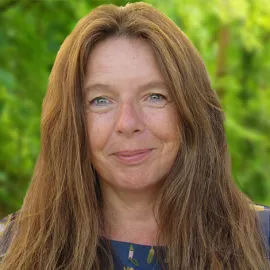Identify and develop agro-resources for food and the environment
|
What type of training ? |
une formation diplômante, sous statut étudiant |
|---|---|
|
For who ? |
student with a French diploma, international student |
Objective
The Specialization Food eco-design engineering (ICOA, former Specialization Science and processing of agro-resources for the alimentation and the environment—SPA2E) aims to train students to be able to identify and develop agro-resources for food systems and the environment. The course prepares graduates for work as managers, researchers, teacher-researchers and experts in the fields of food science and technologies and environmental sciences (water, material, waste).
The major disciplinary fields are biotechnology, food science, green chemistry and sustainable process engineering. Beyond general knowledge concerning the design and management of food processing and preservation processes and the appropriate tools for their analysis, graduates acquire the skills needed to understand and solve qualitative and quantitative agro-resource management problems in a context of sustainable development.
Themes
- agrifood, food science, nutrition, process engineering
- ecotechnologies, green chemistry
- Mediterranean and tropical countries
-
Programme
Number of ECTS credits : 60 ECTS
Language of instruction : In French
In their boundless abundance and diversity, agro-resources consist of complexly structured molecules that have long functioned to fulfil diverse human needs. Year by year, the needs of consumers are increasing in terms of both quantity and quality. This demand is accompanied by a new dimension, that of biodiversity conservation. The southern hemisphere currently holds the bulk of the world’s biodiversity resources. In coming years, this hemisphere consequently will be the meeting ground of different actors engaged in the development of these agro-resources.
The programme offers two personalized specialities: "Development of agro-resources for food" and "Development of agro-resources for non-food applications". Active learning is emphasized through numerous tutored projects. For example, students organize a scientific seminar related to the fields of application of the master’s programme. Through business project management exercises (Masteuriales), they learn to transform their scientific knowledge into industrial innovation and to implement their innovation project like actual project managers.
Required teaching units
- Insight into scientific researchWorld food systems
- Statistics and chemometry
- Food packaging: innovation and environmental concerns
- Sustainable process engineering
- Eco-design and environmental management
- Processing optimization
- Organization of a scientific seminar
- Setting up innovative R & D projects
Specialization “Development of agro-resources for food”
- Design of novel food products
- Development of new food products
- Processing-quality relation
Specialization “Development of agro-resources for non-food applications”
- Integrated resources management
- Formulation and processing
- Bioconversions of agro-resources
Internships
The 5 to 6-month internship (compulsory) takes place during the second semester, either in France or abroad, under the supervision of a tutor. A master’s thesis is prepared and presented in mid-July.
Some examples of internships
- Modelling the growth of a commercial strain of L. Sakei under different environmental conditions.
- Drying parameters and starch gelatinization phenomenon in three varieties of rice.
- Studying the feasibility of producing a leafy vegetable sauce to carry out a biological effectiveness study on young children in Burkina Faso.
- Influence of pre and post-harvest factors on the susceptibility of bananas to skin splitting.
- Analysis and implementation of a system to process bagasse and distillery residues into compost in a distillery.
-
Admissions
Students holding a 4-year degree (Master 1 ICOA, or equivalent) in the fields of biochemistry, biological or agricultural sciences, process engineering, agrifood, environmental sciences. This training course can be taken as an initial training or a lifelong learning programme.
To apply to enter into M2 at Montpellier SupAgro
The application form is completed online. It must be submitted before May 26th. Candidates are selected based on their application files by a joint Montpellier SupAgro-University of Montpellier commission.
If you are an international student AND you have Campus France in your country
In addition to submitting an application to Montpellier SupAgro, you must contact Campus France in your home country to establish an application file. The file must be finalized before May 26th.
Concerning M1
The Master 1 (60 credits) is organized by the Faculty of Sciences of University of Montpellier. It provides students with the scientific tools necessary for the specialization in Master 2. The first year of this course takes place at the University of Montpellier, which oversees enrolment for this year.
If you do not have a Master 1, we advise you to register with the Faculty of Sciences of Montpellier University in Master 1 ICOA.
-
Careers
This master’s programme is for students who would like to work in developing agricultural production for food and non-food purposes, with an eye on environmental concerns. Agrifood, cosmetic, chemical and pharmaceutical industries are the sectors targeted. Graduates can pursue careers in (1) public and private research and development, and (2) patent, technological monitoring, and consulting sectors.
They may also continue on with a PhD—the Master 2 internship in a research laboratory is then recommended.
Director of studies
-

Philippe BOHUON
Lecturer
- Department of Sciences for Agro-Bio-Processes
- UMR Integrated Approach to Food Quality (QUALISUD)
- Centre for Tropical and Mediterranean Studies
Email : philippe.bohuon@supagro.fr
Phone : +33 (0)4 67 61 57 26
Phone : +33 (0)4 67 61 57 26
2nd phone : +33 (0)4 67 61 65 97
2nd phone : +33 (0)4 67 61 65 97
Partners
- Stéphane PEYRON - University of Montpellier
- Eric RONDET - University of Montpellier
Research units:
- UMR QualiSud
- UMR ITAP
- UMR SPO
- UMR ITAP
- UMR Nutripass
- UR LBE
- Institut Européen des Membranes
Registration
Fees
Students from France and EU member countries
Each year: €254 + €105 Contribution Vie Etudiante et de Campus (CVEC) administrative fee
Students from other countries
Each year: €254 (partial fee waiver) + €105 Contribution Vie Etudiante et de Campus (CVEC) administrative fee
Contacts
L'Institut Agro Montpellier
2 place Pierre Viala
34060 Montpellier - France
Tél. : +33 (0)4 99 61 22 00 Tél. : +33 (0)4 99 61 22 00
Fax : +33 (0)4 99 61 29 00
contact@supagro.fr

















